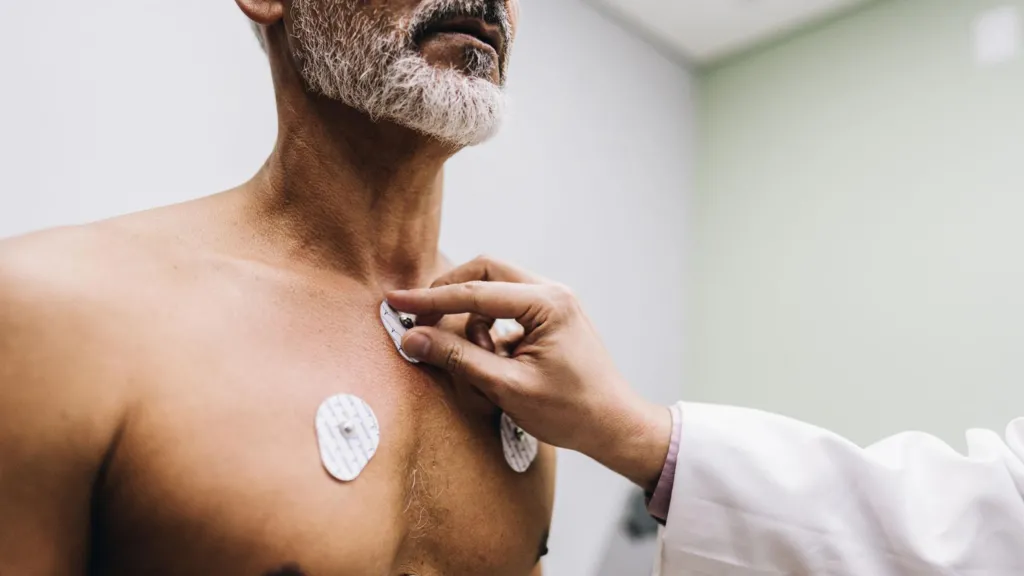Exploring the use of body-worn cameras to enhance employee safety and reduce conflicts in retail environments, CNBC reports.
Walmart has begun a pilot program equipping some of its US store employees with body-worn cameras. The initiative, typically associated with law enforcement, is being tested in the retail sector as a means to enhance worker safety, deter theft, and reduce customer-employee conflict. This move follows similar efforts by other retailers, such as TJX Companies, which owns TJ Maxx, Marshall’s, and HomeGoods.
While Walmart has not disclosed how many stores are involved, customers have reported seeing signs at store entrances alerting shoppers that “body-worn cameras are in use.” Sightings of employees wearing the devices have been shared online, including a photo from a store in Denton, Texas, where an associate was seen wearing a yellow-and-black body camera while checking receipts.
A Walmart spokesperson confirmed the pilot, stating:
“This is a pilot we are testing in one market, and we will evaluate the results before making any longer-term decisions.”
Unlike traditional security measures aimed at deterring theft, Walmart’s body camera program is reportedly focused on worker safety. According to a document titled “Providing great customer service while creating a safer environment,” employees are instructed to activate their cameras if an interaction with a customer begins to escalate. Employees are not required to wear the devices in private areas like break rooms or bathrooms. After an incident, workers are encouraged to log details of the event using Walmart’s internal compliance app.
The timing of the program is noteworthy, as it coincides with the holiday shopping season, a period when retail workers often experience heightened stress and increased risk of tense interactions with customers.
Stuart Appelbaum, president of the Retail, Wholesale and Department Store Union, highlighted the unique pressures retail workers face during the holidays, stating:
“There’s too much harassment that goes on throughout the year, but especially during the holiday season … Everyone is stressed out. If they can’t find the item they’re looking for, they get upset and whom do they blame? They blame the shop worker.”
The use of body cameras in retail has sparked a broader debate. Proponents argue that the cameras may help de-escalate confrontations and provide clear evidence in the event of a dispute. David Johnston, vice president of asset protection and retail operations for the National Retail Federation, noted that many body cameras come with small video screens that allow people to see themselves being recorded, which he believes prompts behavioral changes.
“Many of these body-worn cameras have reverse view monitors on them … The moment that you see yourself is probably [when] you’re going to change your behavior,” Johnston explained.
However, not everyone agrees with this perspective. Critics, including labor advocates, argue that cameras alone are insufficient to ensure worker safety. They point out that employees need better de-escalation training and emergency resources. Stuart Appelbaum of the RWDSU questioned the effectiveness of body cameras, asserting that “workers need training on de-escalation … The body camera doesn’t intervene.”
Bianca Agustin, co-executive director of United for Respect, a worker advocacy group for Walmart and Amazon employees, expressed similar concerns.
“There’s a claim that the body cams are going to promote de-escalation just organically. We don’t think that’s true,” Agustin said.
She argued that better training, not just surveillance, is necessary for employee safety.
An anonymous former retail employee who worked at Hot Topic for a decade also questioned the impact of body cameras on violent encounters.
“With these people, when they’re in our faces and they’re acting like they’re going to hit us or they’re making threats to meet us in the parking lot, they’re not thinking rationally,” they said. “Even with a camera facing them, I don’t think they would care in the moment.”
Walmart’s decision is part of a growing trend among retailers to explore body-worn cameras as a potential solution to theft, conflict, and employee safety. Last year, a survey by the National Retail Federation found that 35% of retailers were researching body cameras, while 11% had begun testing them.
TJX Companies has already implemented a similar initiative. The company’s loss prevention employees, responsible for monitoring and responding to theft, have been wearing body cameras since last year. John Joseph Klinger, TJX’s chief financial officer, said on an earnings call that the cameras have helped reduce “shrink”—the industry term for lost inventory—by encouraging would-be shoplifters to reconsider their actions.
“It’s almost like a de-escalation where people are less likely to do something when they’re being videotaped,” Klinger said.
TJX emphasized that employees who wear body cameras receive thorough training on how to use the devices properly.
Body cameras raise privacy concerns for employees, customers, and privacy advocates. Critics have questioned the extent to which video footage will be used, how it will be stored, and who will have access to it. Walmart employees have noted that surveillance is already a part of their work environment, with security cameras throughout stores. The addition of body cameras has led some to worry about excessive monitoring and the potential misuse of footage.
According to TJX, video footage from their body cameras is only shared upon request by law enforcement or through a subpoena. It remains unclear whether Walmart will follow similar protocols.
Walmart’s body camera pilot is still in its early stages, and the company has not disclosed when or if the program will be expanded. The company has stated that it will assess the results of the trial before making any long-term decisions.
The pilot comes at a time when retailers face rising theft, employee safety concerns, and mounting pressure from labor advocacy groups. By testing body cameras, Walmart is exploring whether the technology can reduce conflict, improve safety, and provide a layer of accountability for interactions between employees and customers.









